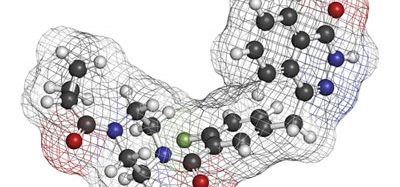New drug provides optimism for individuals suffering from heart failure
Posted: 10 April 2023 | Taylor Mixides (Drug Target Review) | No comments yet
A newly developed drug displays potential in treating both heart failure and the related sleep apnea.


Published in Nature Communications, researchers at the University of Auckland, New Zealand, tested a drug, known as AF-130, on an animal model. They found it improved the heart’s ability to pump. However, it prevented sleep apnoea, which reduces lifespan.
“This drug does offer benefit for heart failure, but it is two for the price of one, in that it is also relieving the apnoea for which there is currently no drug, only CPAP (a breathing device), which is poorly tolerated,” said Professor Julian Paton, director of the University’s Manaaki Manawa, Centre for Heart Research.
Following a heart attack and subsequent heart failure, the brain responds by activating the sympathetic system, commonly known as the “fight or flight” response, to prompt the heart to circulate blood. However, the brain continues to activate the nervous system, even when it is no longer required, and this combined with the resulting sleep apnoea, leads to a decrease in the patient’s life expectancy. Most patients die within five years after being diagnosed with heart failure.
“This study has revealed the first drug to temper the nervous activity from the brain to the heart thereby reversing the heart’s progressive decline in heart failure,” said Professor Paton.
The region of the brain responsible for transmitting nervous signals to the heart also governs respiration. As a result, this drug has a double effect, it decreases the “fight or flight” response while simultaneously boosting breathing to alleviate sleep apnoea. Professor Paton explains that these discoveries have significant potential for enhancing the health and prolonging the lifespan of nearly 200,000 individuals who suffer from heart disease in Aotearoa New Zealand.
The researchers, hailing from the University of Auckland and the University of São Paulo, Brazil, are enthusiastic about an additional element – the drug is on the verge of being approved by the Food and Drug Association, though for a distinct medical condition. According to Professor Paton, this approval paves the way for human trials in the upcoming one or two years.
“Over recent decades there have been several classes of drugs that have improved the prognosis of heart failure,” explained cardiology consultant and Associate Professor Martin Stiles. “However, none of these drugs work in the way that this new agent does. So it is exciting to see a novel method that potentially reverses some features of heart failure.”
Related topics
CRISPR, Drug Development, Drug Discovery, Drug Discovery Processes, Drug Targets, Neurosciences, Targets
Related conditions
Heart failure, sleeping sickness
Related organisations
University of Auckland
Related people
Associate Professor Martin Stiles, Professor Julian Paton








